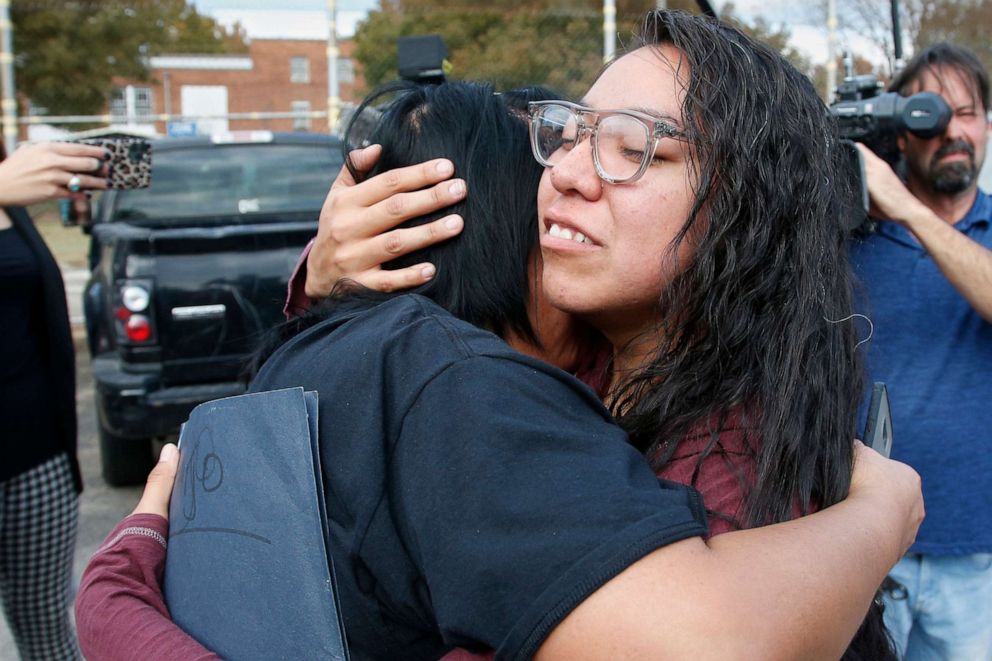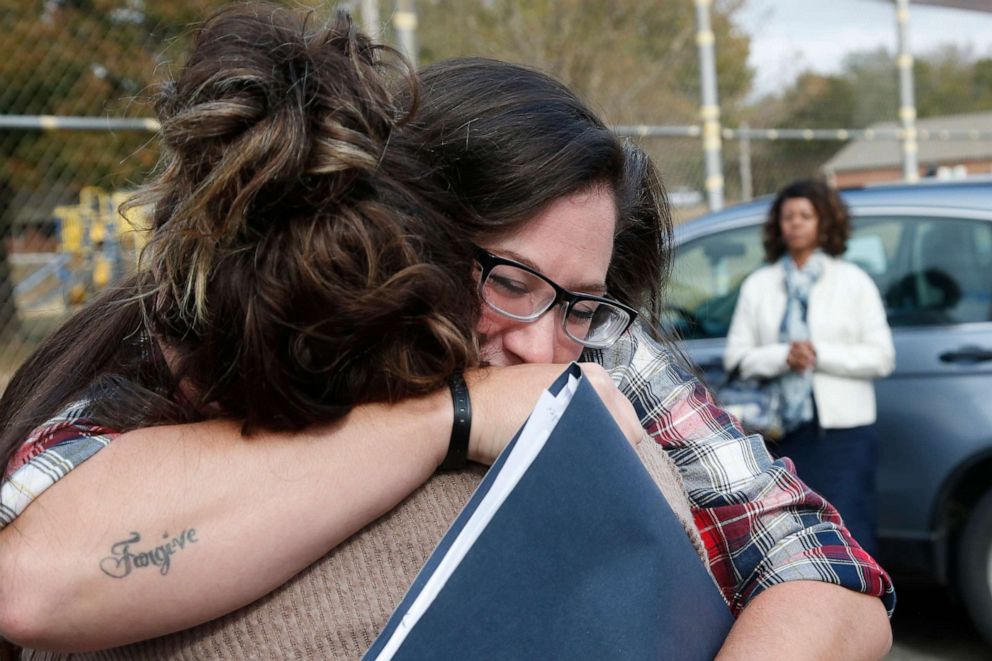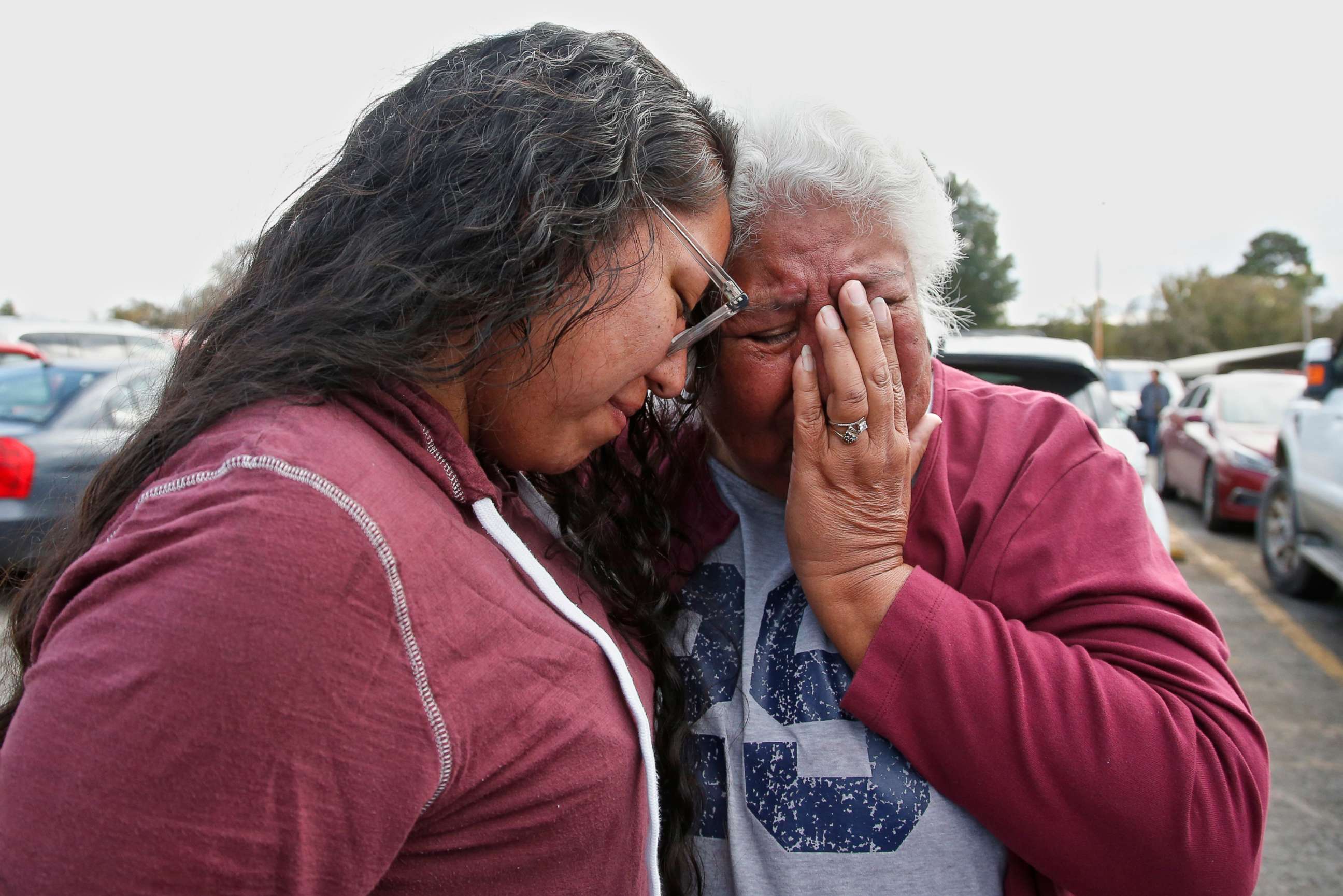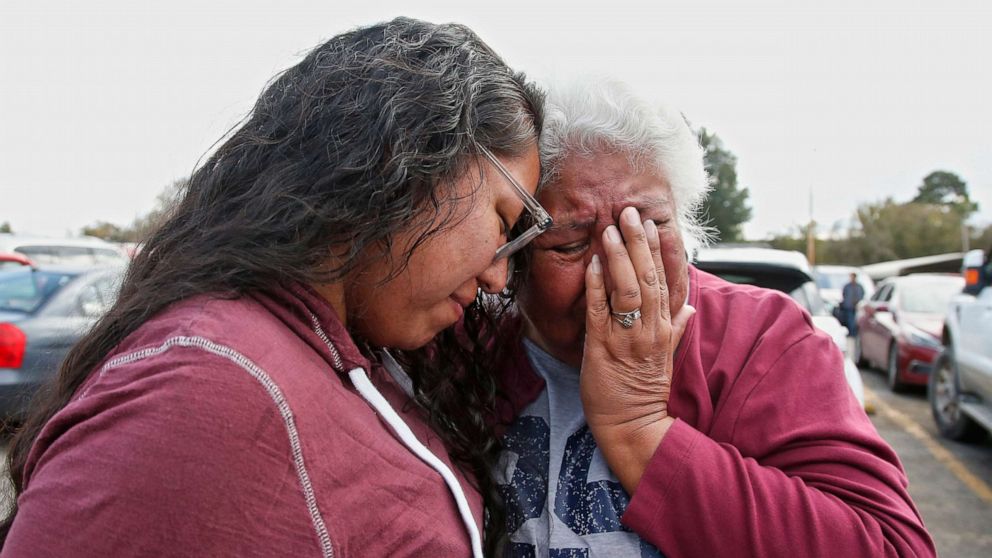Oklahoma releases hundred of prisoners as part of the state's criminal justice reform
In what lawmakers are calling a historic day for criminal justice reform, more than 450 inmates in the Oklahoma prison system were freed Monday, including about 70 women from the Dr. Eddie Warrior Correctional Facility, after a bill passed earlier this year took effect Nov. 1.
One of those women was 38-year-old Lana Lemus who, according to jail records, had been in jail for more than two years for possession of a controlled substance.
"Ecstatic! It’s [a] great thing what the governor is doing so we can be home with our kids," Lemus said as she was walking out the prison with daughter in an interview with Oklahoma City ABC affiliate KOCO. "Been out of her life for three years. But she’s my hopes. She’s never given up on me."
House Bill 1269 was passed in May and limits prison time for many low-level and nonviolent drug and property offenses. The bill came after a public ballot initiative was approved by Oklahoma voters three years ago to change the punishment for these types of crimes.

Oklahoma Gov. Kevin Stitt said the state hosted 28 job fairs, which also included information about housing, education and other life necessities, to make sure the released inmates were set up for success after release.
"It’s when Oklahomans care about each other that we roll up our sleeves and we make it happen and give you a second chance," Stitt said at a press conference Monday, urging the ex-prisoners not to waste the opportunity. "Let’s make sure you do not come back here again."
The state said more than 900 inmates applied for an early release and that it expects to have around 2,000 empty prison beds by the end of the year.
"It’s a great opportunity for a lot of women out there," Lemus said. "What I have to say is 'thank you.' If there’s anybody out there like me, it's not worth it. Drugs are not worth it."
"This right here," Lemus said as she wrapped her arms around her daughter’s face, "this beautiful baby is worth it. I can’t make up for the time I’ve lost."

As of 2018, Oklahoma had the highest incarceration rate in the U.S. with 1,079 people behind bars per 100,000, according to The Prison Policy Initiative.
"These are real people with real lives and real families and real friends, and now they get to go home," Oklahoma House Majority Leader Jon Echols said at a press conference last week. "And that's a pretty special accomplishment."
Calista Ortiz, who was also released from jail Monday, said someone slipped drugs into her purse at the funeral for her 3-month-old son in January 2016 and the grieving mother turned to them to cope with the pain, according to the Oklahoma Department of Corrections.
That decision led to addiction and eventually an eight-year prison sentence.

She’s thankful for a second chance at life and wants to use it to help others.
"I want to help people who have been through loss and addiction or hard things I can relate to. That’s what my calling might be," Ortiz said, according to the DOC.
Monday’s commutation is believed to be the largest single-day commutation in U.S. history, ahead of former President Barack Obama’s commutation of 330 federal inmates, most of whom were drug offenders, on his last full day in office.




